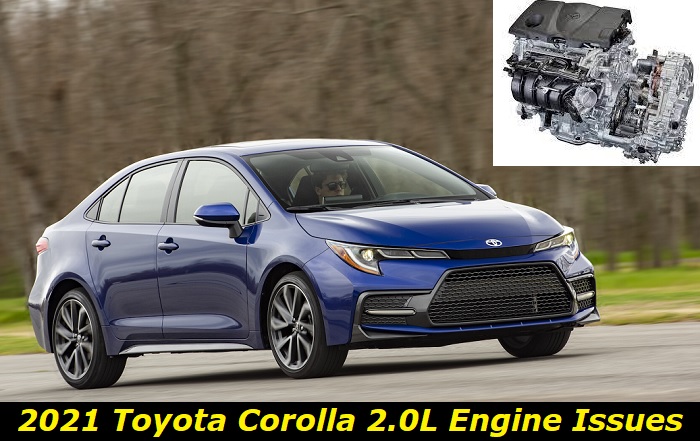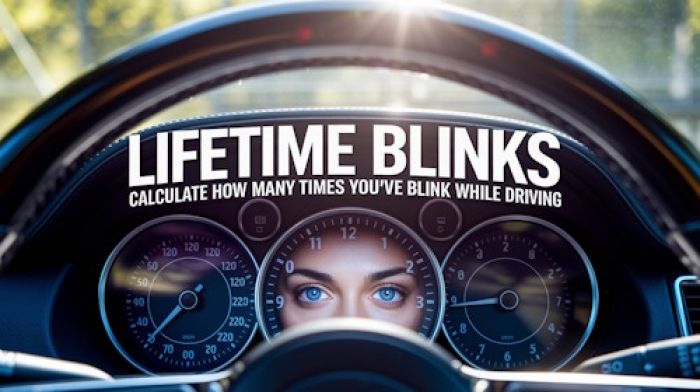Toyota has been making the Corolla for almost 50 years. The vehicle was first presented in 1966, and 12 versions of Corollas have been made since then. Its balance of performance and fuel economy coupled with a dependable quality makes it ideal for daily drives whether it's for work or task-related activities.
The 2021 Toyota Corolla takes pride in having such a storied history and having an engine that is marketed as highly efficient. The 2.0-liter 4-cylinder engine, otherwise known as the "dynamic force" engine, is far from perfect though. Despite its overwhelmingly positive reviews, it's not without its share of complaints along the way.

Key features and my opinion about the engine
- Production years:2018-now
- Average lifespan of M20A-FKS:160,000-180,000 miles
- Fuel supply type:combined injection (direct + port)
- Power range:170-178 hp
- Fuel efficiency:good
- Engine block material:aluminum
- Engine reliability score:medium
- The most common problems:quite noisy work, EGR cooler leaks, EGR valve may get stuck.
Longevity of the 2021 Toyota Corolla 2.0L 4-Cylinder Engine
The 2.0-liter four-cylinder M20A-FKS engine used by the 2021 Toyota Corolla is relatively new. It was developed especially for the new TNGA platform of the Japanese automaker and was consequently unveiled in 2018. Therefore, there's no precise information yet that pertains to its optimum engine life based on its actual use by owners.
If we are to look back at the other Toyota Corolla engines that preceded it though, we can surmise that its life could be stretched out up to 300,000 miles before requiring a rebuild or replacement. Of course, the numbers are coupled with proper maintenance and care.
According to Consumer Reports, the most reliable Corolla models were the ones produced from 2014 to 2019. As to whether or not the 2021 models can replicate their success remains to be seen.
Common Problems Found in the 2021 Toyota Corolla 2.0L 4-Cylinder Engine
From its introduction, there are only a few complaints about the 2.0L M20A-FKS engine of the 2021 Corolla. To date, there are no recalls concerning this particular year model of the car.
However, based on several forums and reports, there have been specific complaints about it that are related to the following issues:
1. Faulty Oil Pistons and Piston Rings
There have been accounted problems with the oil pistons and piston rings in Toyota Corolla models produced in certain years.
One of the first signs that something is wrong with your oil pistons and/or rings is if you're consuming more oil than normal. Check your engine oil level regularly and top off as needed to ensure that you're not running low on this.
Another symptom of faulty oil pistons and/or rings is oil leaks. If you notice any leaking from your engine, it's important to have it checked out as soon as possible to avoid any further damage.
Likewise, a knocking noise coming from your engine is another sign of this issue. If you hear any strange noises coming from your car, it's always best to get it checked out by a professional.
Moreover, if your Toyota Corolla 2.0L 4-cylinder engine is losing power or is struggling to maintain its usual pace on the road, it could be due to the mentioned defective parts. This can lead to decreased fuel efficiency and performance, so it's important to take care of the problem as soon as possible.
Furthermore, if your car's emissions are poorer than normal like it's producing thicker smoke or the smoke comes in colors of gray or blue, it's possible that these issues are to blame. This is not only bad for the environment but can also lead to costly repairs down the line if left unchecked.
Lastly, if you notice metal shavings in your engine oil, it's a sure sign that something is wrong with your oil pistons and/or rings. This is a serious issue that needs to be addressed immediately to avoid further damage to your engine.
If you're experiencing any of these symptoms, it's important to have your car checked out by a professional as soon as possible. They can help diagnose the problem and recommend the best course of action to take. In most cases, replacing the oil pistons and/or rings may be the only solution. If caught early enough, other options such as cleaning or repair may be possible. However, if the problem has been existing for a long time and it has already resulted in damage to many of your engine components, an engine rebuild or replacement may be the most practical solution.
2. Starter Issues
One of the most common issues with the 2021 Toyota Corolla 2.0L 4-cylinder engine is starter problems. The symptoms of this issue can range from a clicking noise when you turn the key to complete engine failure. In some instances, it may be possible to diagnose the cause of the problem and find a solution on your own. However, in other cases, it may be necessary to take your car to a mechanic or dealer for diagnosis and repairs.
If you are experiencing starter problems with your 2021 Toyota Corolla 2.0L 4-cylinder engine, one of the first things you should do is check the battery. If the battery is dead or dying, it will need to be replaced. If the battery is not the problem, the next step is to check the starter solenoid. The starter solenoid is responsible for sending an electrical current to the starter motor. If the solenoid is defective, it will need to be replaced.
If neither the battery nor the starter solenoid is the problem, then the most likely cause of your starter problems is a faulty starter motor. The starter motor is what actually turns over the engine when you turn the key. If the starter motor is defective, it will need to be replaced.
3. Transmission Slippage
Technically, the transmission is not a part of the engine, but since it's one of the key components of the powertrain, a defect in this area can definitely affect the engine. An erratic transmission can cause the engine to struggle or work harder than normal to compensate for the slippage. This can lead to decreased fuel economy and increased wear and tear on the engine.
Transmission slippage is when your car's transmission slips out of gear. This can happen for several reasons, but it usually happens because the transmission fluid is low or dirty. If you have transmission slippage, you may notice that your car takes longer to shift gears. You may also feel the car jerking or lurching as it shifts gears. If the problem is severe, you may even hear grinding noise when the car shifts gears.
If you think you have transmission slippage, the first thing you should do is check the transmission fluid level. If the fluid is low, add more and see if that fixes the problem. If the fluid is dirty, you'll need to have it flushed and replaced.
If adding fluid or flushing the system doesn't fix the problem, then you may have a more serious issue with your transmission. In this case, it's best to take your car to a mechanic for further diagnosis.
If these solutions don't work, then you may need to have your transmission rebuilt or replaced. This is a more expensive repair, but it may be necessary if the transmission is severely damaged.
2021 Toyota Corolla 2.0L 4-Cylinder Engine Specs
Toyota's new Dynamic Force Engine utilizes variable control and high-speed combustion technology. It is capable of reaching higher thermal efficiency, resulting in higher power production. This is due to its effective mitigation of energy loss arising from its re-engineered exhaust and cooling systems, mechanical part movement, and other factors.
In return, the new 2.0-liter gasoline four-cylinder engine, whether used on its own or as a part of a hybrid setup, can achieve a thermal efficiency of up to 41%. Moreover, the configuration allows higher torque at all engine speeds from low to high revolutions and is tailored to meet every anticipated change in emission laws of each of the company's major markets ahead of time.
The engine features a displacement of 1,986cc with a bore of 80.5 mm and a stroke of 97.6 mm. It has a high compression ratio rated at 13.0:1, and its fuel delivery is managed via Toyota's D-4S technology that both uses direct and port injection systems to enable a high combustion process.
The technology decides when to use port, direct, or a combination of the two. The activation of the applicable system is dictated by factors such as engine rotational speed, throttle position, load, and temperature.
The technology employed by the D-4S is not entirely new because it has been in use since 2007 with the Lexus GS models. However, it has seen a significant improvement going to the present.
With all mentioned aspects, the power of the Corolla is optimized to generate up to 169 hp at 6,600 rpm and 151 lb-ft of torque at 4,800 rpm. When operated by a continuous variable transmission (CVT), the numbers let the car sprint from 0 to 60 mph in just 7.3 seconds. Meanwhile, its max speed is capped at 117 mph.
Conclusion
Save for the hiccups uncovered here, the 2021 Toyota Corolla 2.0L four-cylinder engine holds plenty of promise in terms of performance and fuel efficiency. If you own this unit, be sure to address any problems that you may encounter with it without delay to ensure its longevity and a trouble-free driving experience on your part.
About the authors
The CarAraC research team is composed of seasoned auto mechanics and automotive industry professionals, including individuals with advanced degrees and certifications in their field. Our team members boast prestigious credentials, reflecting their extensive knowledge and skills. These qualifications include: IMI: Institute of the Motor Industry, ASE-Certified Master Automobile Technicians; Coventry University, Graduate of MA in Automotive Journalism; Politecnico di Torino, Italy, MS Automotive Engineering; Ss. Cyril and Methodius University in Skopje, Mechanical University in Skopje; TOC Automotive College; DHA Suffa University, Department of Mechanical Engineering






Add comment